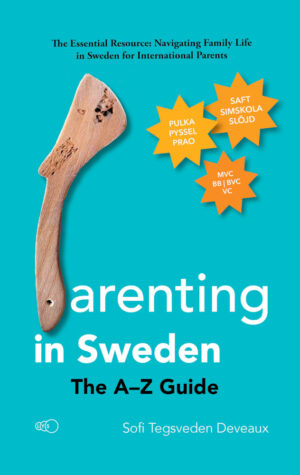Summer is over, and Swedish business is about to settle back into its slow yet productive rhythm. Perhaps you are starting a new job, or hoping that the new season will bring new possibilities. Perhaps you are hoping to make friends with your colleagues. You are newly arrived in the country and need to build up a social network, and what would be more natural than starting with the people you meet every day?
More experienced – disillusioned – expats in Sweden will tell you it is not worth the effort. And too soon, you will understand how. But please, do not despair.
First, the reason that they show no interest in you outside work hours is not because you are a foreigner. A Swedish person new to the office would get the same treatment. Nor is the reason that they do not like you. They probably do. You might be surprised to hear this, because it is not particularly visible, but Swedes really like how sociable non-Swedes are. Back home in the evening, when you are complaining about your hopeless efforts of befriending your Swedish colleagues, these same people are probably sitting around their own dinner tables, talking about how nice you are.
I came back Stockholm from seven years in the UK, and started working in August 2008. I consider myself perfectly socially skilled, and open to meet new people. Despite all my efforts, it took me nearly two years until I had become close enough to some of my colleagues that we would have a personal relationship, defined as us calling each other or meeting up outside work hours, as well as discussing personal matters. I have now left this work place, but these people are still my friends, and we meet up infrequently but regularly. It takes a long, long time to make friend with a Swede, but when your friendship is established, it will be for life. Studies have even shown that most Swedes still count acquaintances they made during their first school years as their best friends – decades after they first met!
I would not be surprised if you already gave up your getting-to-know-a-Swede project. I empathise with this, but still, if care about my opinion, my advice would be to try anyway. On a short-term basis, it is probably advisable that you have a social network of expats, from your own country as well as other ones. You will have a lot in common, especially the first few years. Be aware though, that a large proportion of your international network will continue their global life, and leave after some time. Most locals will stay. By spending time with Swedes, you will automatically learn much more of the language, integrate culturally, and not feel so estranged in your new country. Swedes are very proud of their country, and your new friends will more than likely share their favourite places and experiences with you. That is, when you finally have got to know each other. Be prepared to work on your project for a long time.
Swedes draw a sharp line between what they consider public and private. Work definitely goes into the public domain, and your Swedish colleagues will, by default, not share much of their personal life with you. Many even consider this an advantage, they consider going to work a good break from their private life, a nice chance to see other people and not being associated with who they are at home.
Opinions count as private. It is important to understand that us Swedes do have opinions, just like your average Italian or Russian. The difference is that we keep our opinions to ourselves, and to our close friends and family. In a public situation (like at work) we tend to display signs of agreement, although we might in fact strongly disagree with what is being said. Many internationals are (understandably) very provoked by this. In many other countries, expressing your opinions is a way of getting to know each other, and doing it the Swedish ways signifies you want to stay at a distance. I have seen many cases of internationals expressing increasingly controversial opinions, just in order to get a reaction from their Swedish audience. The unfortunate consequence is that the typical Swede will say less and less. My advice to any frustrated foreigner, is instead, try to go against your instinct and express your agreement with whatever the Swede is saying. The more you agree, the more they will feel comfortable, open up, and actually say what they think.
Otherwise, neutral topics are always good. Anything that can be quantified is a clear favourite. Temperatures, distances, hours of darkness, number of mosquitoes, calories. There are plenty of extreme examples in this part of the world, and your colleagues will compete about informing you of the most spectacular ones. Swedes also love to talk about what they are doing, what they have done, or what they are planning to do. The coming and going weekend is always a hot topic. Holidays, day trips, family outings, house decoration projects. You can come far by embracing this custom and make sure you are living a busy life yourself, and you will have plenty to share with your colleagues.
I most also point out that urban Swedes can be seriously busy people. Health and appearance are considered top priorities. Scheduled appointments at the gym, the badminton court, or the local naprapathy practice are part of the weekly timetable, and are cohered to with an almost religious zeal. Many Swedes also attend evening courses on a regular basis, studying Mandarin, silver forging, or WordPress blogging. On top of that, there is the family. In urban, educated groups, both parents take more or less equal responsibility for children and domestic chores, and both work full time. Extended family members are rarely helping. Family matters always seemed like a bad excuse to me, but since the arrival of our twins, I must admit that each day is a day of too much to do and too little time. Social activities on a weekday will not just happen spontaneously without consulting your spouse – weeks in advance. Some well organised couples agree to have one weekly or biweekly evening free for themselves and meeting friends. Say, odd weeks Wednesdays is the only time your Swedish colleague can have a social life. She is probably booked up weeks in advance, but more than willing to meet you. Your only chance to meet up with her is to go through your calendar and agree to have a drink – in February next year!
This might drive you crazy, and again, all my empathy. But. When you are in the middle of the ever-lasting, dark Swedish winter, and you accidentally find out that you have a drink with a colleague scheduled for Wednesday, I can guarantee you that this is good news. After months without daylight, or anything else to keep you going, you are completely unable to arrange any social activity on your own initiative. After five or six such meet-ups, with an approximate frequency of three months, you will discover that you and your Swedish colleague are now friends. Forever.
One more thing. However busy you are at work, join the coffee break(s). They are mandatory, and not showing up is the best way of telling your Swedish colleagues that you do not consider yourself as one of them.
© Sofi Tegsveden Deveaux, 2015











